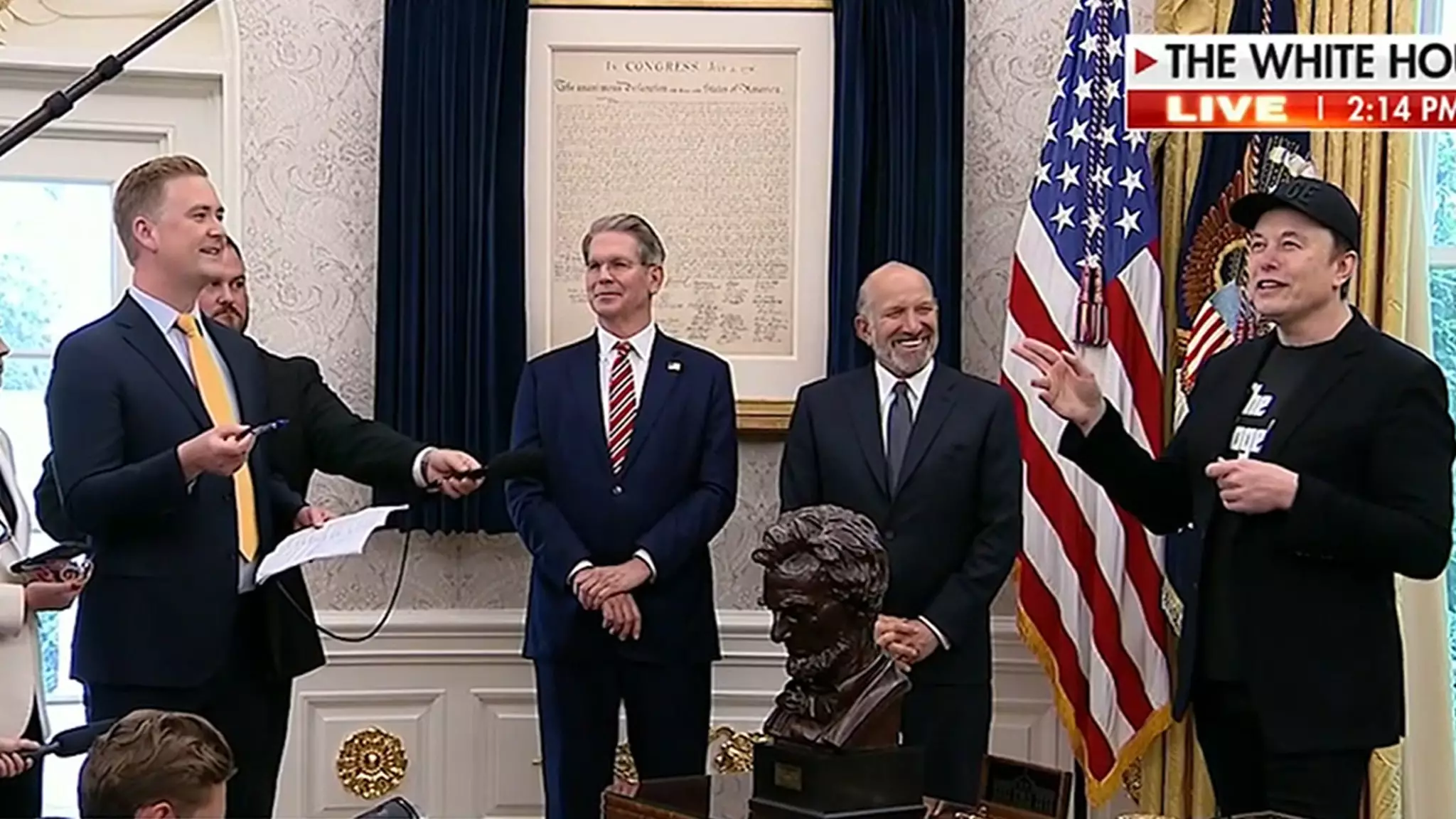In an era where public perception often swings at the behest of influential figures, the clash between Elon Musk and The New York Times exemplifies the intricate dance of media, power, and accountability. Musk, a titan in the tech industry, challenged the credibility of a storied publication while responding to allegations regarding his personal choices. The incident unfurled during a farewell press conference in the Oval Office, a place that has often served as the stage for history-making declarations and momentous slips of the tongue. Musk’s response to The Times’ report on his alleged drug use signals more than a personal defense; it reveals his ongoing crusade against perceived media excesses and misrepresentation.
Musk’s invocation of terms like “reputable news source” reflects his broader strategy of discrediting journalism that doesn’t align with his narrative. This particular skirmish is not merely about drug allegations—it encapsulates a deeper unease many feel towards mainstream media. It requires us to consider: can we truly trust the integrity of journalism in an age of hyperbole? As we unveil the layers of this controversy, we traverse a troubling landscape where opinion often masquerades as fact.
The Allegations: Between Claims and Denials
At the heart of the controversy lies a hefty accusation by The New York Times, alleging that Musk has indulged in significant drug use, including the powerful anesthetic ketamine and various other substances. This report, while sensational, raises critical questions: why now? What purpose does it serve amidst Musk’s preparations to step away from his governmental role? Allegations of this nature can often overshadow significant achievements and contributions, distracting from the message he was poised to convey about government efficiency—an initiative that should demand public scrutiny.
Moreover, Musk’s subsequent dismissal of The New York Times’ reporting underscores the complications that arise when the individual’s narrative directly contradicts institutional journalism. He opted to frame the piece as an attack laden with “fake news”—a term that has become a hallmark of his communications strategy. Herein lies a quandary: in defending oneself against serious claims, does one merely provoke further distrust in journalism? Musk’s tactic of ridiculing the paper’s prestige—reminding the audience of its association with the contentious “Russiagate” narrative—unleashes a barrage of skepticism towards the traditional journalistic ethos.
A Pulitzer Prize Under Fire: Trump’s Legal Drama
Intersecting this personal drama is the looming specter of former President Donald Trump’s defamation lawsuit against the Pulitzer Prize Board. While on the surface, these events may seem disparate, they are conjoined by a common thread: the struggle for narrative dominance. Musk’s decision to leverage Trump’s controversy settles him into a familiar role as a provocateur in contemporary culture.
The lawsuit stems from claims that The Times and others misrepresented facts surrounding the alleged collusion between Trump’s campaign and Russian operatives. Musk’s reference to the Pulitzer Prize, awarded for journalistic integrity, serves as a poignant reminder that accolades can quickly morph into liabilities when narratives crash and burn. If the legitimacy of the award is called into question, what does that imply for the broader implications of trust in journalism? The seamless overlap of politics and media in this juncture is a clarion call; it encourages us to dissect not only the quality of reporting but also the motivations driving such intense scrutiny.
The Ripple Effect: Media Influence and Public Perception
As this saga unfolds, it raises pressing concerns about the role of media in shaping narratives that affect a multitude of stakeholders. The public’s right to know must be balanced against the potential for sensationalism that can distort realities. Musk’s open derision of The Times has set a precedent—if opinionated figures can dismantle the narratives constructed by traditional institutions, what ripple effects will this have on public trust?
The dialogue surrounding Musk’s alleged drug use and its subsequent portrayal by the media highlights an urgent need for self-regulation within journalism. If the goal of reporting is clarity and truth, then both journalists and public figures must navigate this space with care. This moment serves as a reminder that information is not merely about reportage; it’s about influence, power, and the ongoing battle for the hearts and minds of the public.
In the volatile arena of media and technology, the Musk-Times feud encapsulates the complex dynamics at play. It emphasizes the delicate balance between sensationalism and truth that both the media and public figures must engage with, as the stakes continue to rise.

